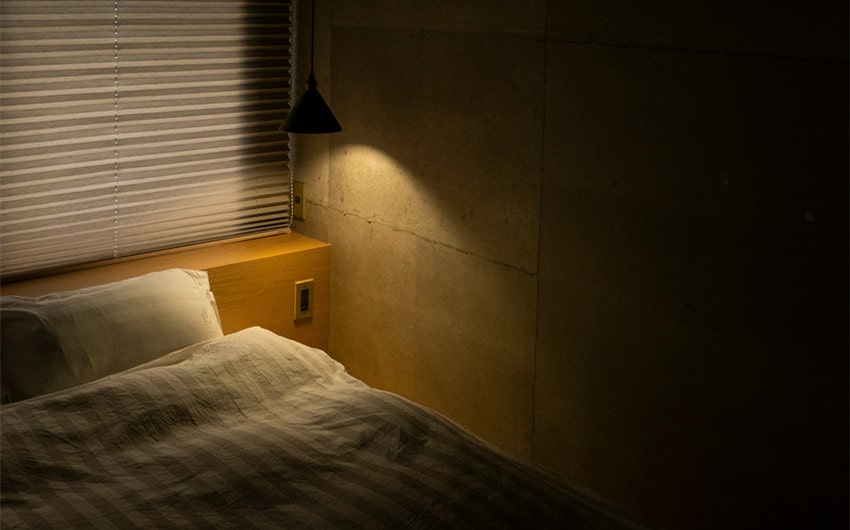9 Steps for Creating an Evening Routine You’ll Stick To
After a long, hectic day, having a structured evening can make all the difference in how you unwind and prepare for tomorrow. An effective evening routine helps you transition from a busy day to a peaceful night, giving your mind and body the time they need to relax. Whether you’re struggling to sleep better or just want to end the day on a calmer note, creating simple yet intentional habits can set you up for a more restful night and productive day ahead. Ready to build your perfect evening? Let’s get started!
Steps for Creating an Ideal Evening Routine
1. Set a Regular Bedtime
Establishing a consistent bedtime is one of the most effective ways to improve your sleep quality. Your body thrives on routine, and going to bed at the same time each night trains your internal clock, making it easier to fall asleep quickly. Pick a time that allows you to get 7-9 hours of sleep and stick to it. Consistency is key, even on weekends. Over time, your body will naturally start winding down as your bedtime approaches, making the transition from wakefulness to sleep smoother.
2. Unplug from Devices
One of the most important steps in an evening routine is disconnecting from electronic devices. The blue light emitted from screens can interfere with the production of melatonin, the hormone responsible for sleep regulation. To protect your sleep cycle, turn off your phone, tablet, or computer at least 30 minutes before bed. Use this time for relaxing activities, such as reading a book, journaling, or listening to calming music. This screen-free period will signal to your brain that it’s time to shift from the busyness of the day to a more peaceful state.
3. Practice Skincare
An evening skincare routine not only benefits your skin but also serves as a relaxing ritual that helps you transition from the day into rest. Start by cleansing your face to remove dirt, oil, and makeup accumulated throughout the day. Follow up with a toner to balance your skin’s pH, a serum to target specific skin concerns, and a moisturizer to lock in hydration. This process allows you to take care of yourself physically, while also promoting a sense of calm. The repetition of these steps creates a signal to your body that bedtime is near.
4. Brush and Floss Your Teeth
Oral hygiene is a critical, yet often overlooked, part of an evening routine. Brushing and flossing before bed not only maintains healthy teeth and gums but also signals that your day is coming to an end. Regular brushing removes food particles and bacteria that have built up during the day, while flossing gets into those hard-to-reach spaces. A clean mouth can also contribute to a fresh feeling as you head to bed, leaving you more comfortable and ready for a restful night’s sleep.
5. Create a Calming Environment
Your environment plays a huge role in how well you sleep. Make your bedroom a sanctuary for rest by adjusting the lighting, temperature, and atmosphere. Dimming the lights helps signal to your brain that it’s time to wind down. Keeping the room cool (around 60-67°F) promotes better sleep by lowering your core body temperature. Consider adding soft, calming scents like lavender through a diffuser or pillow spray to create a relaxing ambiance. Decluttering your space and using cozy bedding can also enhance your comfort, making it easier to drift into sleep.

6. Stretch or Do Gentle Yoga
Engaging in gentle stretches or yoga before bed can help you release physical tension from the day. This simple practice allows your muscles to relax, reduces stiffness, and promotes a sense of calm. Focus on slow, deep breaths as you move through poses like child’s pose, forward folds, or legs up the wall. These movements not only prepare your body for sleep but also quiet your mind, easing any lingering stress. By incorporating stretching or yoga into your routine, you allow yourself to transition from a busy day to a peaceful night.
7. Reflect on Your Day
Taking time to reflect on your day is a great way to clear your mind before bed. Whether you journal or simply spend a few minutes in quiet reflection, this practice helps you process your thoughts and emotions. You can review what went well during the day, what you’re grateful for, or lessons learned. This act of reflection allows you to let go of any mental clutter, helping you feel more at peace as you transition into sleep. Focusing on gratitude can also put you in a positive mindset, which has been shown to promote better sleep quality.
8. Plan for Tomorrow
A little bit of planning in the evening can save you a lot of stress in the morning. Spend a few minutes organizing your tasks for the next day—whether it’s writing a to-do list, prepping your outfit, or setting up your workspace. This small act of preparation not only makes your mornings more efficient but also helps you feel in control, reducing anxiety about the day ahead. By getting organized the night before, you allow your mind to relax, knowing that tomorrow’s responsibilities are already handled.
9. Practice Relaxation Techniques
Incorporating relaxation techniques into your evening routine is a powerful way to calm your mind and body. Techniques like deep breathing, progressive muscle relaxation, or guided meditation can help lower stress levels and prepare you for sleep. You can practice deep breathing by inhaling slowly through your nose, holding for a few seconds, and then exhaling through your mouth.
Visualization is another effective method—imagine yourself in a peaceful setting, like a beach or forest, to help your mind drift away from the day’s concerns. These practices can help quiet racing thoughts and bring you into a relaxed state before bed.
Why an Evening Routine Is Important
An evening routine is crucial because it sets the tone for how you transition from the demands of the day into a peaceful night of rest. Without a structured routine, it’s easy to carry the stress, anxiety, or chaos of the day into the evening, which can negatively affect your sleep and overall well-being. By intentionally winding down, you allow your mind and body to relax, making it easier to fall asleep and stay asleep. A consistent evening routine signals to your brain that it’s time to shift gears and prepare for rest, helping you avoid the tossing and turning that can come from an overstimulated mind.
Moreover, a well-planned evening routine has benefits that extend beyond better sleep. It’s an opportunity to reflect on the day, practice self-care, and prepare for the next day, leading to a sense of control and clarity. By incorporating habits that calm your mind and body, like skincare or meditation, you’re nurturing your mental and physical health.
In the long term, this leads to improved emotional balance, better focus, and increased productivity during the day. An effective evening routine is not just about sleep—it’s about ending your day on a positive note and setting the foundation for a successful tomorrow.

How to Stick to Your Evening Routine
Creating an evening routine is only half the battle—sticking to it consistently is what makes the difference. Below are some practical tips to help you maintain your routine, even when life gets hectic.
1. Start Small and Build Gradually
One of the biggest mistakes people make is trying to overhaul their evening routine all at once. It’s important to start small and make gradual changes to avoid feeling overwhelmed. Begin by incorporating one or two new habits, such as unplugging from devices or setting a consistent bedtime. Once those habits become second nature, add additional steps like practicing skincare or doing light stretching. By slowly building your routine, you’ll be more likely to stick to it long-term.
2. Make Your Routine Enjoyable
Your evening routine should be something you look forward to, not a chore. Focus on incorporating activities that relax and soothe you, such as reading, meditating, or enjoying your skincare routine. The more enjoyable your routine is, the easier it will be to follow through. Find what works best for you—whether it’s listening to calming music, taking a warm bath, or journaling—so that your routine feels like a reward at the end of the day, rather than another task.
3. Set Reminders
Life can get busy, and it’s easy to forget about your routine, especially when you’re tired or distracted. Setting reminders on your phone or using apps can help keep you on track. A gentle reminder about 30 minutes before bedtime can prompt you to start winding down and unplugging from devices. You can also use alarms to remind you of specific activities within your routine, such as starting your skincare regimen or practicing deep breathing exercises. These little prompts can help reinforce your routine until it becomes a natural habit.
4. Create a Consistent Schedule
Consistency is key when it comes to forming habits. Try to perform your evening routine at the same time every night. A consistent schedule trains your body and mind to expect the routine, making it easier to follow. If you keep a relatively regular bedtime and start your wind-down activities at the same time each night, it will soon become automatic. Even on weekends, aim to stick to your schedule to maintain the rhythm.
5. Remove Distractions
Distractions can easily derail your evening routine, especially if you’re tempted by your phone, TV, or other stimulating activities. Create an environment that supports your routine by removing potential distractions. For example, put your phone on airplane mode, keep your bedroom clutter-free, or turn off the TV after a certain time. The more serene your environment, the easier it will be to stick to your relaxing activities and avoid interruptions.
6. Hold Yourself Accountable
Accountability is a powerful motivator. If you find it hard to stick to your evening routine on your own, consider enlisting an accountability partner. This could be a friend or family member who also wants to build a consistent routine, and you can check in with each other on your progress. Alternatively, you can keep yourself accountable by tracking your routine in a journal or using an app. Logging your activities can help you see patterns, stay motivated, and make adjustments as needed.
7. Be Flexible When Needed
Life doesn’t always go according to plan, and there will be nights when your routine is disrupted. That’s okay. The key to long-term success is flexibility. If something unexpected comes up, don’t stress about sticking perfectly to every step. Instead, focus on the core elements of your routine—like unwinding and preparing for sleep—and adjust the rest as needed. Being too rigid can lead to frustration, so it’s important to give yourself grace when necessary. The goal is consistency, not perfection.
8. Reflect on the Benefits
Take time to reflect on how your evening routine is improving your life. Are you sleeping better? Do you feel more relaxed at night? Is your next day more productive because you’ve prepared mentally and physically the night before? By recognizing the positive impact of your routine, you’ll be more motivated to stick with it. Regularly reminding yourself of these benefits can reinforce why the routine is worth maintaining.
9. Stay Patient and Persistent
Building any new habit takes time, and sticking to your evening routine is no different. It’s easy to get discouraged if you don’t see immediate results, but patience is key. Remember that routines take time to solidify, and persistence will eventually pay off. If you slip up one night, don’t abandon the routine altogether—just pick it up again the next night. Over time, your routine will become second nature, and sticking to it will feel effortless.







